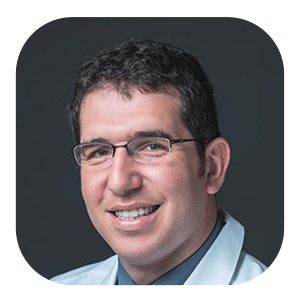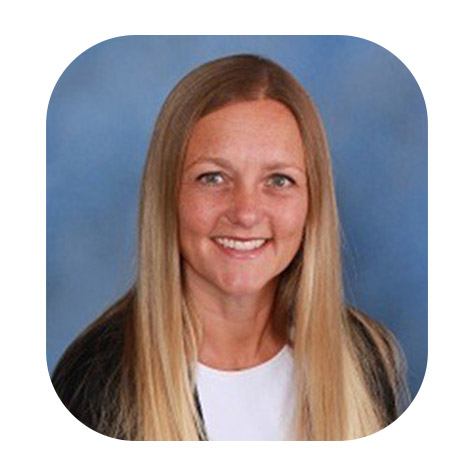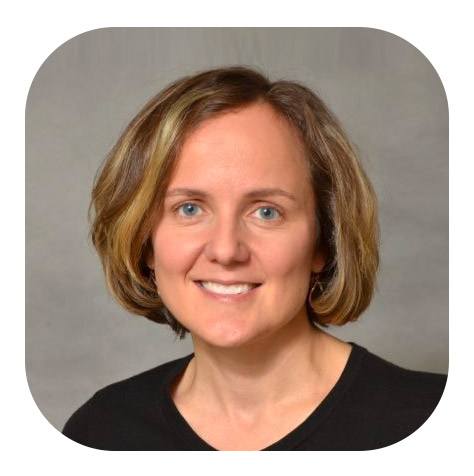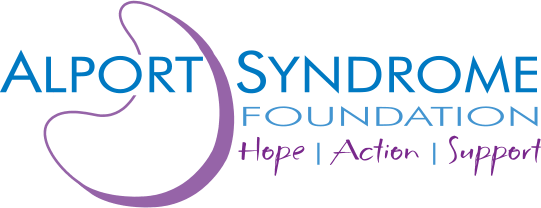The Alport syndrome Foundation is honored to have a team of outstanding physicians on the Medical Advisory Committee. Each is a renowned clinician in the field of nephrology and has research interests and numerous publications in related topics. The Medical Advisory Committee provides input and review of clinical and scientific information, and research funding applications; provides patient resources; and helps identify emerging research opportunities that offer hope to understanding and treating Alport syndrome.

Laith Al-Rabadi, M.D.
Assistant Professor of Nephrology, University of Utah
Dr. Al-Rabadi finished his undergraduate and medical training at Jordan University of Science and Technology in 2007. Afterwards, he joined Edelman lab at Harvard-MIT Division of Health Sciences and Technology to study endothelial dysfunction in uremic milieu. Dr. Al-Rabdi finished his Internal Medicine training at University of Iowa in 2013 then moved on to begin nephrology training at Boston University-Boston Medical Center. He had the privilege to work with Dr. David Salant and developed special interest in Glomerular diseases. Dr. Al-Rabadi was also actively involved in teaching students and residents.
His clinical interests include different aspects of nephrology particularly glomerular diseases, transplant, and peritoneal dialysis. He is involved in several clinical research projects and literature reviews.
He established a unique collaboration with Dr. Laurence Beck at Boston Medical Center to initiate innovative projects related to membranous nephropathy (MN) pathogenesis with the goal of developing clinical and translational research and enhancing University of Utah role as a destination site for MN. Dr. Beck is a world-renowned expert and an authority in MN and published extensively on the pathogenesis and biomarkers in MN. He also established a collaboration with Dr. Bernstein and from Moran Eye Center to perform clinical studies related to Alport syndrome (AS). He has been working closely with Dr. Gregory who, along with Dr. Atkins, has collected samples, clinical information and pedigrees of 130 families with X- linked AS. They also identified over 30 families with probable autosomal recessive AS based on patterns of inheritance. He evaluates many patients with AS at the kidney and the transplant clinic.
He is motivated and committed to advance the field of glomerular diseases and Alport syndrome at the University of Utah.

Gerald B. Appel, M.D., F.A.C.P., F.A.S.N.
Professor of Medicine, Columbia University Medical Center
Gerald B. Appel, MD is the Director of the Glomerular Kidney Disease Center at Columbia University Medical Center of The New York-Presbyterian Hospital in New York City. He has been a Tenured Professor of Medicine at Columbia University College of Physicians and Surgeons since 1989. He received his undergraduate BA from Cornell University graduating in three years with distinction in all subjects and as a member of phi beta kappa. He received his medical degree from Albert Einstein College of Medicine, NY in 1972, where he was elected to the medical honor society Alpha Omega Alpha. He completed his internship and residency in Internal Medicine at Columbia Presbyterian Medical Center. He then completed Fellowships in Nephrology at both Columbia-Presbyterian Med. Ctr. (1975-1976) and at Yale-New Haven Medical Center, New Haven, Connecticut (1976-1978). He has spent the rest of his career at Columbia University.
Dr. Appel has served as an officer and President of The NY Society of Nephrology, he has served on the Medical Advisory Board and as the Chairman of the Research Committee of the National Kidney Foundation (NKF) of NY-NJ and The Kidney and Urology Foundation of America, and as Chair of the Council of Glomerulonephritis of the NKF of the United States. Dr Appel has been listed in New York Magazine as one of the “Best Doctors in New York” annually between 1992 and 2018 and is listed in “Best Doctors in America.” He has served on the editorial board of a number of journals including the Clinical Journal of the American Society of Nephrology, Clinical Nephrology, and the editorial board of Up-To-Date. He has been the director of a number of educational courses including The Columbia U Internal Medicine Course in NYC, Renal Biopsy in Medical Diseases of the Kidney in NYC, and for many years directed the annual course in The Treatment of Glomerular Diseases at the American Society of Nephrology meetings (1998-2010). Dr Appel has authored and co-authored over 350 peer-reviewed articles and book chapters He has received numerous awards including the Albert Douglas Award of the Medical Society of NY State for excellence in clinical teaching, The Lester Honig Award of the NY-NJ Kidney Foundation, the Distinguished Service Award of the Nephcure Foundation, The Distinguished Alumnus award from Albert Einstein College of Medicine, and twice the Teacher of the Year Award by Columbia University’s medical school classes. He has given numerous named lectures including recently the Dornfeld Lecture at George Washington U., The Hugh Carrol Lecture in NYC, The Kasperak Lecture at the Cleveland Clinic, and the Chandos Lecture at the UK Society of Nephrology. He annually has spoken to large groups at the American Society of Nephrology, The National Kidney Foundation, and the International Society of Nephrology. At any given time, he is the PI or Co-PI on 8-15 grants at Columbia U, currently including NIH grants through the NEPTUNE Study. He was awarded The Donald Seldin Award for life-time achievement by the National Kidney Foundation of the US in 2012. His career has been devoted to the care and welfare of patients with glomerulonephritis, lupus, and the nephrotic syndrome.

Caitlin Carter, M.D.
Associate Clinical Professor of Pediatrics, University of California San Diego School of Medicine
Clinical Director of the Division of Nephrology, Rady Children’s Hospital, San Diego
Caitlin Carter is board certified in adult and pediatric nephrology and an active clinician caring for adults and children with kidney disease. She completed her internal medicine and pediatrics residency and combined adult and pediatric nephrology fellowship at UC San Diego. Her current clinical practice focuses primarily on pediatric patients, and she has an interest in the impact of kidney disease across the lifespan. She is currently the clinical director of pediatric nephrology at Rady Children’s Hospital San Diego, overseeing the clinical operations and is actively involved in medical education at UC San Diego.

Alessia Fornoni, M.D., Ph.D., F.A.S.N.
Professor of Medicine
Chief of Nephrology
University of Miami (Miami, FL)
Chief Scientific Officer, L&F Health LLC
Dr. Fornoni is tenured Professor of Medicine and Molecular and Cellular Pharmacology at the University of Miami Miller School of Medicine. She is the Chief of the Katz Family Division of Nephrology and Hypertension and serves as the Director and Chair of the Peggy and Harold Katz Drug Discovery Center. In 2013, Dr. Fornoni gained experience in drug development as Global Head of Discovery in Cardiovascular and Metabolism at Hoffman-La Roche in Basel. She is currently the Vice-President and Chief Scientific Officer of L&F Health LLC, a small start-up company focused on finding a cure for patients affected by chronic kidney diseases.

Rasheed Gbadegesin, MBBS, M.D., F.A.A.P., F.A.S.N.
Professor of Pediatrics, Division of Nephrology
Professor in Medicine
Duke University School of Medicine (Durham, NC)
Dr. Rasheed A. Gbadegesin is a Tenured Professor of Pediatrics, Division of Nephrology, Duke University, Durham, NC, and Investigator at the Duke Molecular Physiology Institute (DMPI). He is the Co-Director of the Duke CTSA KL2 program and the Program Director of the Duke Pediatric Research Scholar (DPRS) program. The overarching objective of his research program is to understand the genetic basis, the pathogenesis, and the determinants of variable therapy response in hereditary and idiopathic nephrotic syndrome. In the last ten years, Dr Gbadegesin and his collaborators have identified at least five novel genetic causes of steroid resistant nephrotic syndrome/Focal Segmental Glomerulosclerosis (FSGS) and other kidney diseases. More recently, using the strategy of extreme phenotyping, his group identified the first exome-wide locus for childhood onset steroid sensitive nephrotic syndrome (SSNS). He has established a large biorepository of phenotype data and biosamples from children with nephrotic syndrome and he is currently collaborating with other Investigators around the World to determine the biologic basis for ethnic disparities in the incidence and severity of nephrotic syndrome with the ultimate goal of developing strategies for personalized treatment of nephrotic syndrome. He has presented his research at both international and national meetings and published many peer reviewed journal articles with multiple first and senior author papers related to the molecular pathogenesis of nephrotic syndrome. He has published many landmark papers on genotype-phenotype correlation studies in different glomerular diseases including a paper that described the overlap between Alport syndrome and familial FSGS. Dr Gbadegesin is the Principal Investigator on multiple NIH, foundation, and industry grants. He was elected into the American Society for Clinical Investigation (ASCI) in 2016.

Martin C. Gregory, B.M., B.Ch., D.Phil.
Professor of Medicine
Department of Internal Medicine
University of Utah School of Medicine (Salt Lake City, UT)
Dr. Martin Gregory is Professor of Medicine (Clinical) and Associate Division Chief, Division of Nephrology, University of Utah School of Medicine. He completed his medical school training at the University of Oxford in England in 1968. He then went on to complete his internship and residency in Nephrology in Paris, France at the Medecin Resident Etranger des Hopitaux and in Oxford, England at Churchill Hospital. Dr. Gregory has been a member of the faculty of the University of Utah, Division of Nephrology, since 1981. He is board certified in internal medicine and nephrology. Dr. Gregory has served on the editorial boards of the Archives of Internal Medicine, Journal of the American Society of Nephrology, Transactions of the American Society for Artificial Internal Organs, Kidney International, and New England Journal of Medicine. He has received numerous scholastic honors and has published hundreds of articles and book chapters related to Nephrology and the genetics of Alport syndrome.

Lesley A. Inker, M.D., M.S.
Director of Tufts Medical Center’s Kidney and Blood Pressure Center
Associate Professor at Tufts University School of Medicine (Boston, MA)
Dr. Lesley Inker is the director of Tufts Medical Center’s Kidney and Blood Pressure Center and is an Associate professor at Tufts University School of Medicine, Boston, MA. She completed her medical training, internship and residency in internal medicine at McMaster School of Medicine, Hamilton, Ontario, Canada, her fellowship in nephrology at University of British Columbia, Vancouver, BC, Canada and a research fellowship at Tufts Medical Center, Boston, MA. Dr. Inker is the chair of the Scientific Advisory Board for National Kidney Foundation CKD Patient Registry, was co-chair of the Kidney Disease Outcome Quality Initiative (KDOQI) committee on the CKD Guidelines, which wrote a commentary on the Kidney Disease Improving Global Outcomes (KDIGO) CKD 2012 guidelines and is on the editorial board of American Journal of Kidney Disease. She has published hundreds of articles related to her work in kidney function measurement and estimation, alternative endpoints for clinical trials of kidney disease progression, and epidemiology and outcomes related to Chronic Kidney Disease. Dr. Inker received the National Kidney Foundation’s 2018 Garabed Eknoyan Award.

Clifford E. Kashtan, M.D., F.A.S.N.
Professor of Pediatrics
Division of Pediatric Nephrology
University of Minnesota (Minneapolis, MN)
Dr. Clifford Kashtan is Professor of Pediatrics (with tenure) at the University of Minnesota Medical School, and an attending Pediatric Nephrologist at the University of Minnesota Children‘s Hospital, in Minneapolis, Minnesota. He is board certified in Pediatrics and Pediatric Nephrology. He completed his medical school training at Wayne State University in Detroit, Michigan, his Pediatric residency at Boston City Hospital, and his Pediatric Nephrology fellowship at Massachusetts General Hospital and the University of Minnesota. He has been a member of the faculty of the University of Minnesota since 1987. He is a Fellow of the American Society of Nephrology and has served on the editorial boards of the Journal of the American Society of Nephrology, Nephrology Dialysis Transplantation and Pediatric Nephrology. He has also served as a Councilor of the American Society of Pediatric Nephrology. Dr. Kashtan has authored numerous original research articles, reviews and book chapters on Alport syndrome. He is also the author of the Alport syndrome entries at the online resources UpToDate and GeneReviews. He has lectured on Alport syndrome at numerous institutions and meetings, both nationally and internationally, and served as a consultant to foundations and biotechnology firms supporting Alport syndrome research and development of new treatments. Dr. Kashtan developed methods for diagnosing Alport syndrome by examining type IV collagen chains in kidney and skin biopsies. In 2007, Dr. Kashtan founded the Alport syndrome Treatments and Outcomes Registry (ASTOR), an effort to facilitate clinical trials of treatments for people with Alport syndrome.

Bruce Z. Morgenstern, M.D.
Associate Dean for Clinical Affairs
Professor of Pediatrics
Roseman University College of Medicine (Las Vegas, NV)
Prior to his recent move to Las Vegas, Dr. Morgenstern was Chief of the Division of Nephrology at Phoenix Children‘s Hospital and Director of Kidney Transplantation there. He is an active clinician and educator who has contributed to the care of children on peritoneal dialysis, with hypertension, kidney stones, and chronic kidney disease based on the results of clinical studies and on his participation on several guideline writing groups. He has written chapters in textbooks on Pediatric Dialysis and Pediatric Hypertension, and edited a textbook on medical student education. Dr. Morgenstern is a frequently invited speaker at nephrology and medical education meetings.

Anjay Rastogi, M.D., PH.D.
Director | Alport Program
Director | CORE Kidney Program
Professor and Clinical Chief
Division of Nephrology / Department of Medicine
David Geffen School of Medicine at UCLA
Dr. Rastogi is Professor and Clinical Chief of Nephrology at the David Geffen School of Medicine at UCLA, Los Angeles, California. Dr. Rastogi is board certified in Nephrology and has a doctoral degree (PhD) in Pharmacology. He did his Internal Medicine residency and Nephrology fellowship at UCLA; he completed his graduate training under the mentorship of Nobel Laureate Professor, Louis Ignarro also at UCLA. He is heavily involved in research and serves as the Director of Nephrology Clinical Research Program, and Medical Director of the ESRD Dialysis Program. He founded the CORE Kidney Program and the Bruin Beans Health Club at UCLA. Dr. Rastogi received an award for the UCLA Exceptional MD of the Year Award in 2014 for his demonstration of the UCLA values of Compassion, Respect, Excellence, Discovery, Integrity, and Teamwork.

Michelle Rheault, M.D.
Board Certified Pediatric Nephrologist
Associate Professor of Pediatrics
University of Minnesota Masonic Children’s Hospital (Minneapolis, MN)
Dr. Michelle Rheault is a Board Certified pediatric nephrologist and Associate Professor of Pediatrics at the University of Minnesota Masonic Children’s Hospital in Minneapolis, MN. She completed her medical school training, Pediatric residency, and Pediatric Nephrology fellowship at the University of Minnesota Medical School. Her interest in Alport syndrome started during her fellowship training when she helped to characterize the first mouse model of X-linked Alport syndrome. From there, she turned her attention to clinical research and is currently co-director of the Alport Syndrome Treatment and Outcomes Registry (ASTOR) and an investigator in clinical trials of new therapies for patients with Alport syndrome. She has a special interest in women with Alport syndrome. Dr. Rheault has written a number of book chapters, reviews, and original science articles about Alport syndrome. In addition, she is on the steering committee for the Midwest Pediatric Nephrology Consortium and a member of the American Board of Pediatrics Subboard of Pediatric Nephrology.

Johannes Schlondorff, M.D., Ph.D.
Clinical Associate Professor of Medicine
Division of Nephrology
Ohio State University Wexner Medical Center, Columbus, Ohio
Dr. Schlondorff is a Clinical Associate Professor at Ohio State University Wexner Medical Center’s Division of Nephrology. He is a former Assistant Professor of Medicine at the Beth Israel Deaconess Hospital and Harvard Medical School. He is board certified in Nephrology. He completed his MD at the Weill-Cornell School of Medicine and obtained his PhD in Molecular and Cellular Biology with Dr. Carl Blobel at the Sloan-Kettering Institute and Cornell University. He completed his internal medicine residency at Columbia-Presbyterian Medical Center in New York, his nephrology training at the joint MGH-Brigham and Women’s Hospital fellowship program and did his post-doctoral research with Martin Pollak, studying the mechanisms of autosomal-dominant forms of FSGS, including those mediated by mutations in ACTN4, INF2 and TRPC6. He joined the Beth Israel Deaconess Medical Center in 2010. Dr. Schlondorff continues to study FSGS, with a focus on the basic mechanisms in genetic forms of the disease.

James F. Simon, M.D., F.A.C.P., F.A.S.N.
Program Director, Nephrology Fellowship
Assistant Professor, Cleveland Clinic Lerner College of Medicine
Medical Staff
Cleveland Clinic, Cleveland, Ohio
Dr. James Simon is currently a member of the medical staff in Nephrology at the Cleveland Clinic in Cleveland, Ohio. He is the Nephrology Fellowship Training Program Director. He is an Assistant Professor at the Cleveland Clinic Lerner College of Medicine. He received his medical degree from Loyola Chicago Stritch School of Medicine in 1998. He completed his internship and residency while on Active Duty in the Army at Brooke Army Medical Center in San Antonio, TX. He served as Chief Medical Resident at Brooke for a year before completing his Nephrology fellowship at Walter Reed Army Medical Center in Washington, DC. He returned to Brooke Army as a staff Nephrologist until 2007. His tenure there included a deployment to Iraq as part of operation Desert Storm/Desert Shield and 2 years as chief of the Nephrology section. Upon separating from the Army in 2007, he came to the Cleveland Clinic where he served as Associated Program Director of the Nephrology fellowship until 2010 when he became Program Director, a position he held until 2017. He earned his MBA from Baldwin Wallace University in 2019. He is Board certified in nephrology and internal medicine. He is currently a medical director in Medical Operations and is the medical director for Enterprise Analytics. His clinical interests include adult-diagnosed Alport syndrome and atypical hemolytic syndrome. He is a member of Alport Syndrome Foundation’s Medical Advisory Committee and has participated in clinical trials studying Alport syndrome. He has focused on identifying and treating Alport syndrome in previously undiagnosed adults.

Howard Trachtman, M.D., F.A.S.N.
Pediatric Nephrologist
Professor of Pediatrics, University of Michigan
Dr. Howard Trachtman is a board certified pediatric nephrologist, current adjunct professor of pediatrics at the University of Michigan, and former tenured professor of medicine at New York University’s Langone Health. He received his doctorate from the University of Pennsylvania and did his fellowship in pediatrics at Albert Einstein College of Medicine. Dr. Trachtman is an extremely well regarded specialist in pediatric glomerularnephritis and fluid disorders. In his own words “When I was in medical school, I looked up to pediatricians and nephrologists. I thought the work they did was unbelievable, so the choice to become a pediatric nephrologist was an easy one. Now, I treat children who have renal disease and renal failure. When I’m not seeing patients, I research pediatric glomerular diseases and the impact of environmental chemicals on children’s health. I know that treatment can have varying effects on different parts of the body, even if it alleviates or fixes a condition. When I take care of children, I think carefully about how I want to treat them. I make an effort to learn everything I can about them so I’m aware of any and all potential effects of treatment. I try to listen to my patients’ stories about why they have come to see me, rather than relying only on diagnostic tests. While available treatments can be lifesaving, they are not perfect—my aim is to strike a balance, coming up with the healthiest option that is tailored to meet each patient’s needs.”

Bradley A. Warady, M.D.
Chief of Pediatric Nephrology and Director of Dialysis and Kidney Transplantation
Senior Associate Chair and Professor, Department of Pediatrics
Children‘s Mercy Hospitals and Clinics
University of Missouri-Kansas City School of Medicine (Kansas City, MO)
Dr. Bradley Warady is Professor of Pediatrics at the University of Missouri-Kansas City School of Medicine and Senior Associate Chairman, Department of Pediatrics, Chief of Nephrology and Director, Dialysis and Transplantation at The Children‘s Mercy Hospitals and Clinics. He currently serves as Co-Principal Investigator of the International Pediatric Peritoneal Dialysis Network and the multicenter, National Institutes of Health (NIH)-funded Chronic Kidney Disease in Children (CKiD) Study. He is also a Council Member for the International Pediatric Nephrology Association (IPNA). He has published more than 300 articles and book chapters and he has co-edited the books CAPD/CCPD in Children and Pediatric Dialysis. Dr. Warady has been a member of several clinical practice guideline writing committees for the National Kidney Foundation (NKF), and he recently co-chaired the NKF workgroup which published guidelines for the Nutritional Management of Children with chronic kidney disease. Dr. Warady serves as Associate Editor for Peritoneal Dialysis International and he sits on the editorial board of Pediatric Nephrology.
